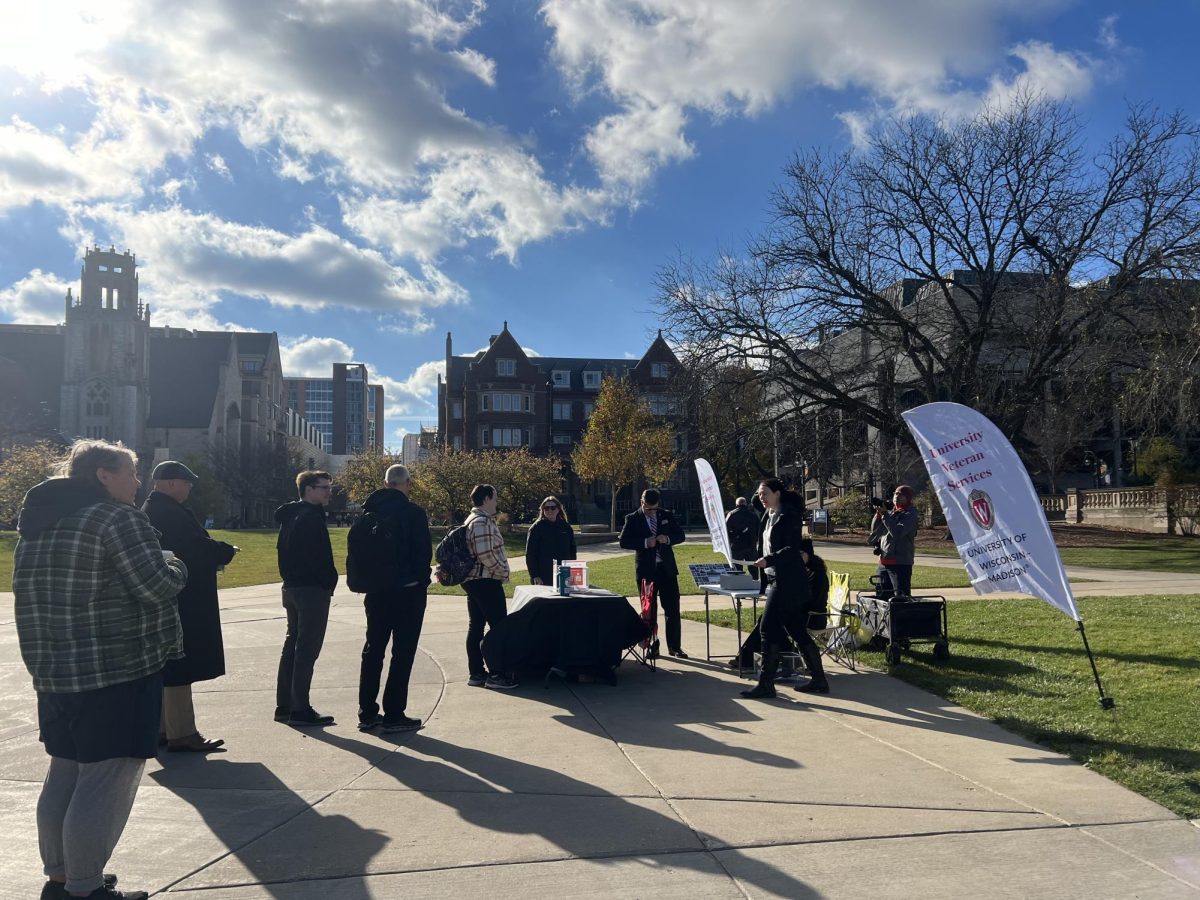For Ellen Zweibel, the choice to study astronomy was never a hard one. Her entire life, she said, has been spent looking up at the sky — using math and physics to figure it out.
“When I was a kid, I became infatuated with the sky and the planets,” Zweibel said. “For a while, I approached this kind of like a kid, but then I wanted to know more. And so I tried to read higher level material and got nowhere with it and then realized I was going to have to study math and physics.”
And it turns out this was her true passion, as she actually became more interested in studying the numbers than the sky.
Now, after 16 years at the University of Wisconsin and as the Kraushaar and Vilas Distinguished Achievement Professor of Astronomy and Physics, Zweibel’s studies focus on the plasma physics of astronomy.
Her research has advanced the understanding of cosmic magnetic fields and the formation of stars. And her work on the solar cycle and solar flares has helped scientists understand the symbiotic relationship these events have with the earth.
This research is also what helped make Zweibel one of four UW faculty to be awarded one of the 2019 Hilldale Awards — an award given out annually to professors for their distinguished contributions to research, teaching and service.
One faculty member from each of the areas of study — the arts and humanities, social sciences, physical sciences and biology — are selected to receive the award and are chosen based on recommendations from department chairs.
This year’s recipients are Professor of Psychology Patricia Devine, Vilas Distinguished Achievement Professor of Dance Jin-Wen Yu, W.L., Professor of Comparative Biosciences Linda Schuler and Zweibel.
For Schuler, who has been a professor in the School of Veterinary Medicine since its beginning, the award is more than a recognition of her contribution to research.
“It’s incredibly humbling because I work with so many wonderful people and so many dedicated people — so yeah, it’s quite humbling,” Schuler said.
Schuler started at UW in 1983, researching how hormones coordinate normal events like pregnancy in cows. From there, she studied everything from lactation in cows to lactation and breast cancer in mice. Each study tied back to implications for human disease.
Schuler’s research defined the genetic details of the normal control of milk production and later allowed her to discover that the milk-producing hormone, prolactin, also induces breast cancer.
Earning the award after starting from the ground up in the veterinary program gave the recognition a whole new meaning, Schuler said.
“Those were pretty exciting times in the beginning where you were starting to build things from the ground floor and develop a curriculum,” Schuler said. “It’s awesome because it also built really strong bonds between the people you worked with because you had such a common goal and motivation.”
Ten UW faculty members receive Distinguished Teaching Award, honors unique teaching methods
And Schuler attributes this camaraderie between staff members to the great work environment within the program.
Devine has also been at UW since the beginning of her career and has stayed because of the community she’s built here.
“[UW] is an extraordinary university,” Devine said. “It has tremendous resources, it’s got the right values, the right approach that we’re going to focus on our research and our teaching as well as service. I like the Wisconsin Idea notion — which now has evolved into the Wisconsin Experience. And so it felt like a really good fit and I’ve found over the years that I love teaching the students here.”
When Devine started her career, she was working on social cognition and person memory but wasn’t excited about it. She started to look for interesting things to think about and found studying stereotyping and prejudice to be her passion.
Now, her research focuses on prejudice through implicit bias. Devine’s research shows how even if people try to eliminate their prejudices, unconscious bias still persists and blocks them from fixing their harmful biases.
Devine has since developed an intervention program for people to realize and eliminate their implicit bias. This program, she said, has actually led to more women being hired in various departments at UW.
Devine said she has always been interested in this, stemming from her childhood.
“I moved around a lot as a kid and as I moved from place to place, I noticed that people seemed to think that they knew a lot about people based on their last names,” Devine said. “I thought that wasn’t really very fair, they are making assumptions — now I wasn’t a social psychologist yet and I didn’t really know what these issues were, but it kind of troubled me.”
UW recognizes efforts, challenges faced by returning adult students
Devine said she continuously found these types of scenarios where people would assume something about someone without even knowing them, and she wanted to learn more about it.
Overall, Zweibel said she is overwhelmed and honored to receive this award because there are so many faculty doing important and interesting things at UW. She said education is something that has always been important to her and she loves surrounding herself with it.
“I really enjoy being here,” Zweibel said. “I really like my colleagues and the students — there are a lot of really good students at UW.”
The winners will each receive $7,500 in recognition of their work and will be honored at the May 6 Faculty Senate meeting.













